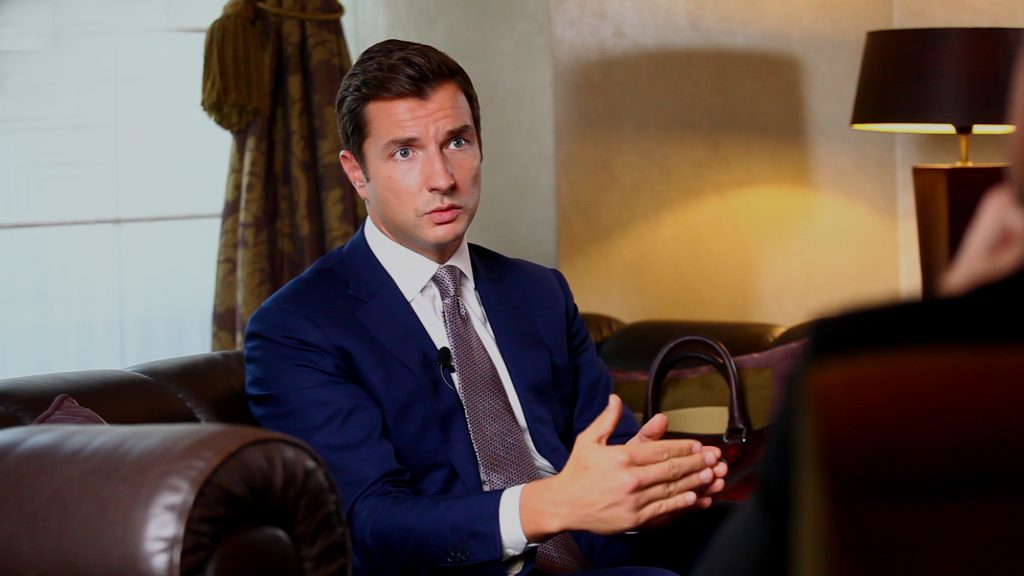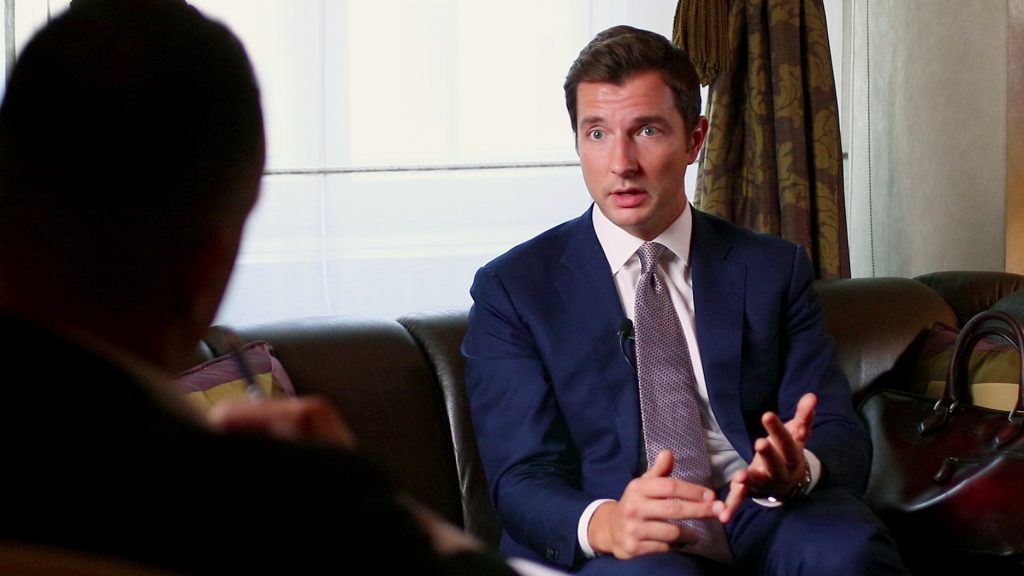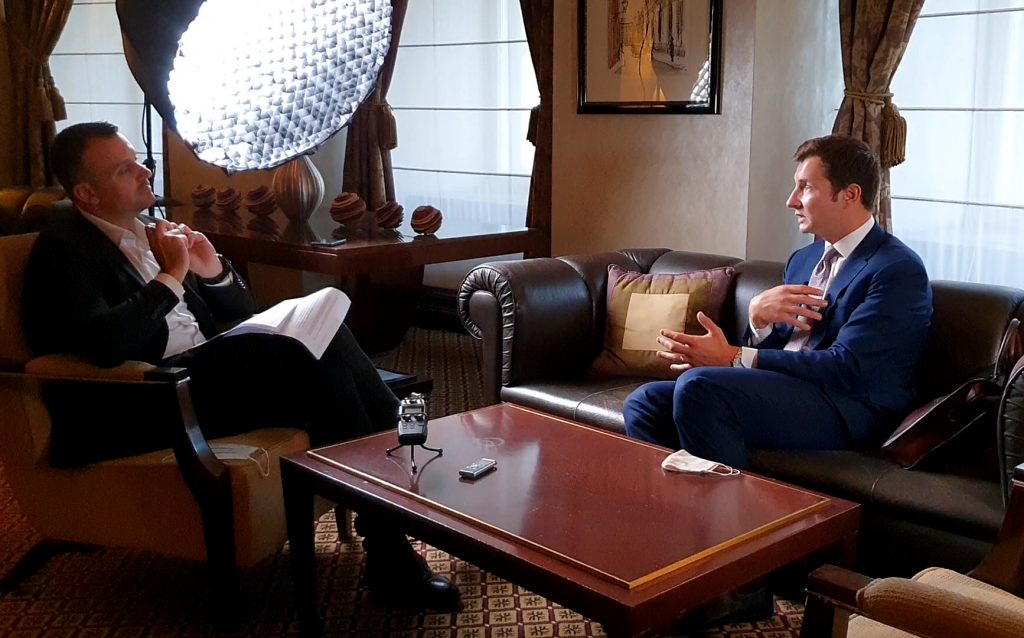The economic cooperation is crucial, we are here to help
The United States of America decided to shift their focus from futile attempts to create a full-blown perfect political solution in the Western Balkan region to the effort to elevate the living standard and the economy. This is clearly visible in the recent Serbia-Kosovo Agreement and in opening the regional branch of DFC, a very important and a quite new American development bank. We spoke with John Jovanović, newly appointed Regional Director of DFC about the future plans of this financial giant.

Bearing in mind that the US International Development Finance Corporation deals in, why did it take so long to open an branch here in the region and have the necessary conditions been met only now?
Maybe it is helpful if I explain a little bit how DFC came about. It is an idea that originated actually under the Obama administration which was to create the proper American development bank akin to what the counterparts have, to work together, to achieve some of our development goals globally. So think of EBRD, EIB, IFC and countless others. So the idea was to take OPEC which has been very active around the globe and in the region for decades, combine it with some development credit agency that was previously with the USAID, and combine it, but it was the past Congress that authorized it in 2018 with the bipartisan support. And what it did… it did a couple of things that were particularly important. 1) It doubled the size of the balance sheet available to DFC from 30b to 60b, 2) and most importantly, quite importantly for this part of the region, it took away the requirement that any transaction or a project in which we participate, so we the American involvement. So we have projects that have international involvement, with those companies that kind of share our values. That happens with something quite important.
Is this the first proper regional office and regional presence anywhere, of DFC?
The part of the plan was to really sort of think about the different regions of the world as coverage areas. It came to IFI’s or other development institutions of the globe. As part of the economic normalization that we have reached in the White House between Kosovo and Serbia, this administration saw in the DFC the potential to help both of those countries broaden the financial tools available to them to realize the commitments under the economic normalization agreements. That really helps the Western Balkans and come to the forefront and hence the original place. But this is the first proper regional office and regional presence anywhere. We’ve had investment officers elsewhere around the world but this is the beginning of what would, I’m sure, follow – other regional offices and regional coverage for DFC.
You have history here, and as you explained now, you are just beginning here. As an American Development Bank that cooperates with the private sector, how interesting you think the Western Balkan is to the US companies?
Sure, as I mentioned a moment ago, we have near term goals and we are heavily oriented towards helping Kosovo and Serbia to realize their commitments under the economic normalization agreement. However, a key sector for us and a key focus of our development team is energy security and energy diversification. You perfectly pointed out that our unique toolkit is geared towards catalyzing private sector investment and private sector capital. Regional security and regional energy diversification truly has to start with a leader and it is truly a regional story. A lot of countries in the region are too small to think about a sustainable energy future as natural gas and LNG in particular, but even we’re down on the line with some renewables advancements. It’s regional economic cooperation that will be crucial to realize those goals.
“I think that the biggest potential is to increase regional cooperation at every level”
Sure, there is a tremendous growth potential here, the smaller scale projects, as far as the global scene is concerned… sure, but you’ve demonstrated the proof of concept, you’ve done it. Let’s talk about that, how can we do that, how can we help you do that, most importantly how can we mobilize the American private sector. It’s a good question.
We are the world leader in the shell and there is a tremendous amount of private capital invested in expanding the LNG export capacity. There is technical know-how and capacity and capability. And there is also a desire in this low-interest environment to find on a risk-reward basis, attractive financial returns. DFC can be tip of the spear and mobilize some of the capital byways of some of our direct investment products which are energy-eligible, so, oftentimes there are projects in the region, they are attractive, they are making sense, there are common equity sponsors, someone who’s ready to lose money first. That’s a project sponsor. It is attractive enough to bring bank financing. But there are oftentimes projects that are a bit shortfall in capital. And that risk capital shortage is where we’d like to play a role.

What is that DFC insists on in investing? The most important for you?
On one hand, we want to find the deals that make the economic sense. We are here to catalyze and realize projects that by and large make financial and economic sense. On the other hand, we are a development bank, the development agency with very robust development criteria. So, these are thinks we would like to see, the key development goals of ours: 1) job creation 2) female empowerment – we want to support the initiatives that help empower women, employ women, see women in leadership positions they deserve. These are two axes. The other key growth and development criteria: we want the environmental… Especially since the projects have fallen into certain categories of the work, there is in-depth environmental and social impact… there is public comment… there is a very keep development compass in everything we do.
As a development corporation, how many funds have you secured for the region?
There is no minimum and there is no maximum. So it is very much opportunity-set driven. In other parts of the region where we have more development goals, there are actually smaller-scale projects that we think can make a tremendous impact. All the way up to larger projects that would require more capital. Our framework is not “we are allocating this much to the region, we are allocating this much to a country, or a sector”. Introducing ourselves, better understanding where we can work together. We’re to deal with the pipeline, the way we wouldn’t do with the private sector.
“It is all about turning around and facing each other as a real opportunity for economic cooperation”
Finally, what is the key message for the successful business? Is there any secret key?
In my experience, it’s been investing in your know-how and your team and your people. And high-quality people with a shared ethical point of view, with shared values, that really care about doing a good job together, is crucial. I think that’s where more American involvement, spreading… Capital is being monetized around the world right now, especially when interest rates stay so low, but high-quality partners with know-how and shared vision, with shared values for the future, I think that is crucial. So you want to work with partners, especially as a common investor, in multinationals, that hire local people, help develop the local supply chains, that leave with their work a positive impact on know-how, knowledge and society.

What is the biggest problem here when we talk about business? For the whole region, all countries? They might have one and the same problem: people’s minds, legislation… or something?
Each country has its own challenges and its own road to reform. By the way, the entire region is very fortunate. The US Ambassadors are so driven, so committed, they are your biggest champions and your biggest advocates, both here in Europe and home in Washington. But I would say… look, it’s hard for me with anything I am doing to help and so on. But one thing is what the entire region is thinking about. It’s turning around and facing each other as a real opportunity for economic cooperation. Even at the micro-level, since the business is by and large already doing it. If we think about the economic prosperity, and it doesn’t necessarily mean getting your differences or you cultural identities, your linguistic identities or your sovereignty, but seeing a true value in better trading and cooperating with each other, building the economic future together.
Author: Boban Spasojević